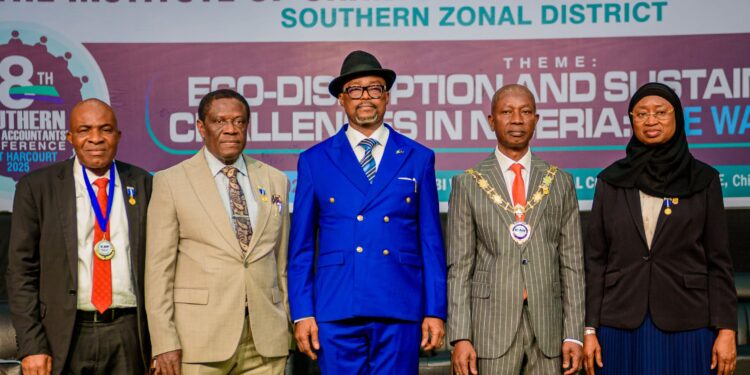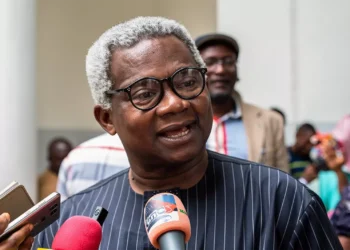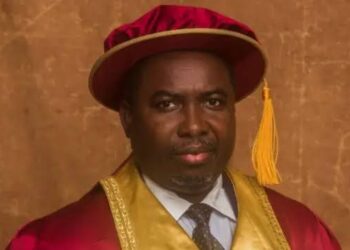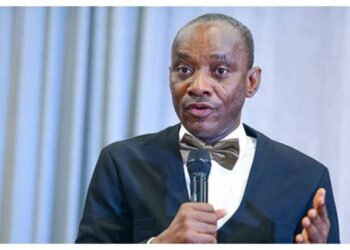Port Harcourt, Nigeria – Nigeria’s sustainability challenges require urgent and innovative solutions, and Vice Admiral (Rtd.) Ibok-Ete Ekwe Ibas believes combining accounting ethics with environmental stewardship will pave a viable path forward.
Speaking at the Institute of Chartered Accountants of Nigeria (ICAN) 8th Southern Zonal Conference in Port Harcourt, Ibas stressed that integrating accountability with green skills will enable Nigeria to thrive competitively within the global sustainability landscape.
Transitioning into his keynote, Ibas explained how climate change, deforestation, pollution, and unsustainable consumption patterns are severely damaging Nigeria’s ecosystems, economy, and national security in measurable and long-term ways.
From coastal erosion in the Niger Delta to desertification in the north, he emphasised that these environmental crises threaten livelihoods, economic productivity, and ultimately the country’s overall national stability.
He argued that sustainable development extends far beyond planting trees, requiring systemic restructuring through discipline, measurement, ethics, and professional accountability as key principles for lasting impact.
Ibas further called for reforms shifting Nigeria away from extractive economic models toward regenerative systems prioritising environmental, social, economic, and human sustainability pillars simultaneously.
Moreover, he proposed stronger environmental governance, targeted green financing, afforestation initiatives, mangrove restoration, and integrating Nigeria”s sustainability principles into professional ethics and formal education curricula nationwide.
He also encouraged implementing fiscal policies promoting renewable energy adoption, supporting community-based conservation, and ensuring transparent environmental data for inclusive policy planning processes.
ICAN President Mallam Haruna Nma Yahaya supported this vision, stating Nigeria’s renewable energy sector could generate 300,000 jobs while adding $7.4 billion to GDP by 2030.
He urged members to align with United Nations Sustainable Development Goals and adopt global sustainability reporting standards to unlock $1 trillion in African opportunities.
Encouraging Professional Involvement in the Green Economy
Yahaya also emphasised incentivising eco-friendly investments, promoting ESG disclosures, and building strategic public-private partnerships to realise Nigeria’s Net-Zero Energy Transition Plan successfully.
Finally, he encouraged accountants and finance professionals to join ICAN’s ESG and Sustainability Faculty to acquire essential leadership skills for the green economy.




































